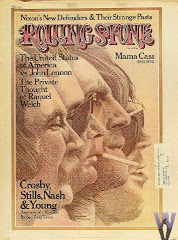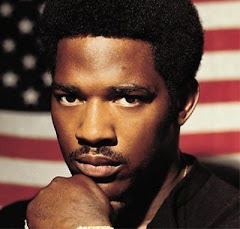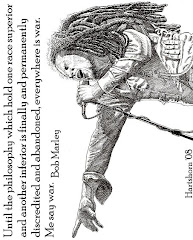When poetic and literary devices are used properly in works of literature, it is beneficial to the meaning of the novel, play or even song. For example, authors use imagery and symbols in order to aid the overall theme of their novel while artists and bands use alliteration and repetition to help certain verses stick in the listener's mind. Bob Dylan's lyrics are, for the most part, very poetic and sometimes ambiguous in meaning. His song "A Hard Rain's A-Gonna Fall" shows how the use of these devices benefit his attempts to voice his opinion on war, more specifically the Vietnam War.
First and foremost, there are several paradoxes that can be found throughout the song. The line, "I saw a newborn baby with wild wolves all around it," is a paradox since you would never expect a newborn baby, a vision of innocence and purity, to be found anywhere near wild wolves. Also, the line, "I saw guns and sharp swords in the hands of young children," is a paradox because guns and sharp swords are not commonly found in the hands of common citizens, let alone young children. Another paradox is found in the line, "Heard the sound of a clown who cried in the alley," because clowns are supposed to be happy and up-beat, not upset. There are also many hyperboles found in this song, including, "I've been ten thousand miles in the mouth," "heard the roar of a wave that could drown the whole world," and, "heard ten thousand whipserin.'" The first example is considered a hyperbole because it is unlikely that the speaker has been ten thousand miles anywhere, just as it is unlikely that there is a wave that could drown the whole world. The last example is also a hyperbole because it is also unlikely that he could hear ten thousand people whispering. Yet another poetic device found in this song is alliteration, seen in the lines, "I saw ten thousand talkers whose tongues were all broken," "I saw guns and sharp swords," and, "stepped in the middle of seven sad forests." The repetition of the letters 't' and 's' in close succession help the lines to stick out in the reader's mind. Additionally, "dozen dead," "miles in the mouth," and, "black branch with blood" are examples of alliteration because of the repetition of the letters 'd,' 'm,' and 'b.'
Bob Dylan's "A Hard Rain's A-Gonna Fall" has innumerous examples of literary and poetic devices that help in the song's overall telling of a specific message, in this case, the Vietnam war. After dissecting the song for all possible literary devices, one can see how unique and well thought-out Dylan's lyrics are. Ambiguous in parts as it is direct, "A Hard Rain's A-Gonna Fall" tells a story of the lasting effects of the Vietnam War for future generations. Dylan tells the listener that by taking away the innocence of these young men who are being forced into war, there will be a devastating effect which includes the death of these men. It is blatantly obvious that literary and poetic devices helped Dylan's overall message in his song.
Subscribe to:
Post Comments (Atom)












1 comment:
I believe that songs and music from a specific period of time prove many aspects of that time's politics and beliefs.
Post a Comment